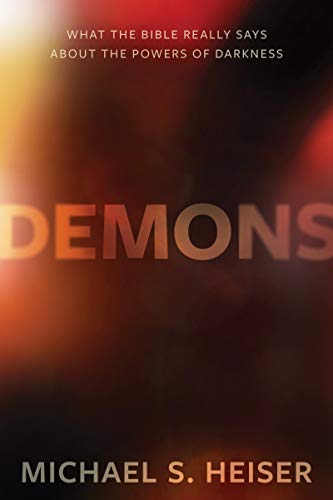BEN: So let’s see if we can sum up some of the basic conclusions of Chapter 2: 1) Ha Satan of Job 1-2 fame is not the chap we later came to call the Devil. He is the prosecuting attorney of the heavenly council, so to speak—the ‘adversary’ as opposed to the advocate in legal terms; 2) the rebel/serpent in the garden of Eden is indeed the one later called Satan, but he is a throne guardian/cherubim, and so rather like the chaps in Isa. 6 but not like angels (which you say have no wings); 3) though Gen. 3 says nothing about a ‘fall’ of the snake from heaven, you assume that it’s assumed by the writer??? I would rather say that personal evil is simply present in the garden, and that text doesn’t tell us how it got there, or where it came from. That amplification comes from later more developed thinking and texts; 4) Adam and Eve were not inherently immortal, but before the Fall they had access to the tree of life and could become so. They had to be shooed out of the garden so they didn’t become eternal fallen creatures?? Yes? 5) Where in either Gen. 3, Ezek 28 or Isa. 14 is the serpent/devil associated with the underworld, and it is suggested he becomes the ruler of the dead and death? And one more question— I don’t agree with your suggestion equating the malak Yahweh with Yahweh. It seems clear to me he is the agent of Yahweh, authorized to speak and act for him, even as his mouthpiece, much like the concept of the shaliach—‘a man’s agent is as himself’. In this regard the malak is no different then ‘ha satan’ in Job 1-2 who is not Yahweh but goes and acts on his authorization. It leads me to wonder whether the snake in the garden is not just the pawn for the devil/rebel not the devil in person. Comments?
MICHAEL: I don’t think the writer of Gen 3 tells us anything about when the rebel / serpent decided to oppose God’s plan. The only possible hint to that would be the line in Gen 3:5 – read in concert with 3:22, which is clearly plural – that, if the humans eat from the forbidden fruit they will become as gods / elohim, knowing good and evil. One *could* read that line like so: “Hey, if they eat of that fruit they’ll know what evil is, like we do – we’ve seen that happen before” (as an allusion to the rebel’s rebellion). However, there’s no way to be secure in that reading. It’s possible but that’s about all you can say. Without that, we have no chronology. When I get this question, I’ll typically say that the rebel fell the moment he decided to oppose God’s plan. God wasn’t blind about that. He let the test play out, having already decided on a plan of action to restore humanity and his creation in the event of disaster (which was bound to happen at some point because humans aren’t Him).








